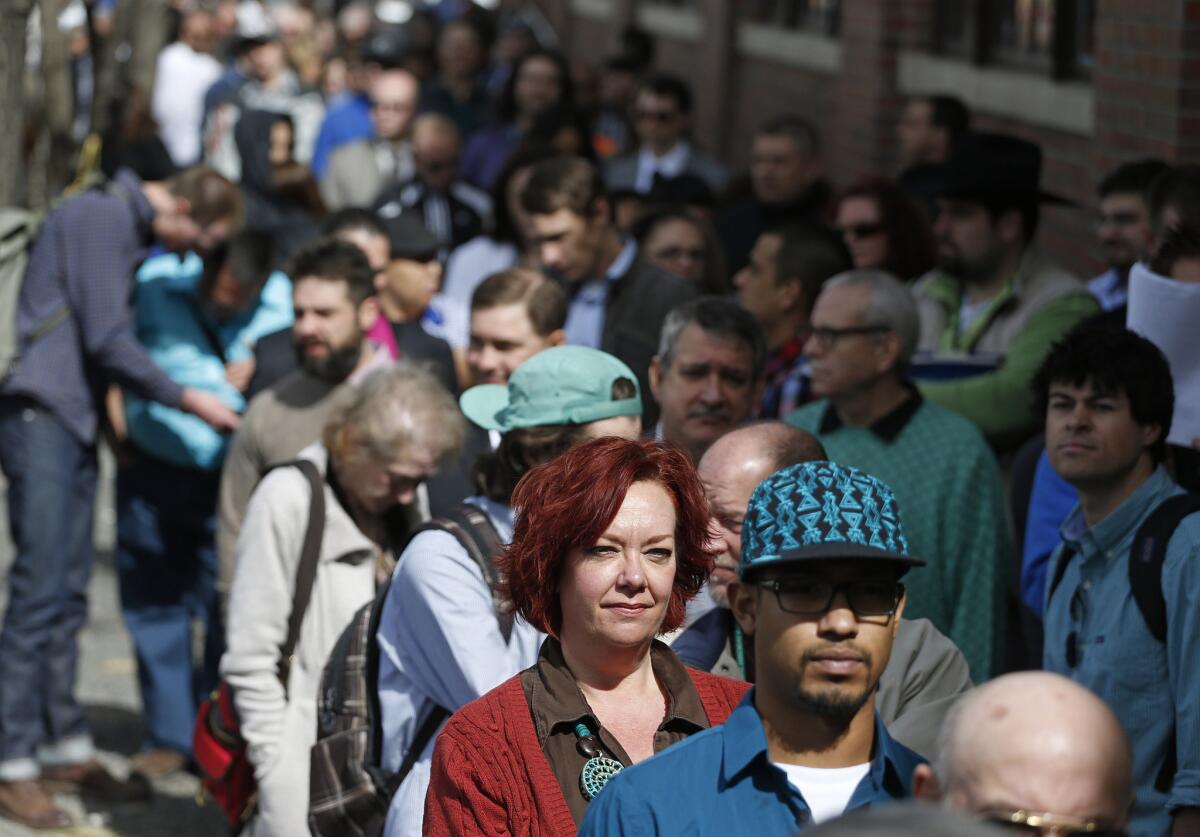Editorial: Congress, extend jobless benefits, again

- Share via
How’s this for irony: Having allowed federal unemployment benefits to run out in December, some lawmakers are balking at a bill to renew them retroactively because it might be hard to figure out who should receive them. Congress made this task far harder than it should have been, but the technical challenges aren’t insurmountable. Lawmakers should restore the benefits now and leave them in place until the unemployment rate reaches a more reasonable level.
Federal jobless benefits, which are provided only in times of high unemployment, kick in after people have exhausted their state benefits, which typically last for six months. The federal help available in each state gradually shrinks as the economy there improves; as a consequence, the average amount of federal aid offered fell from 59 weeks in January 2012to 29 weeks in December 2013. But rather than allow this process to run its course, Congress let the federal program expire at the end of December, cutting off aid to 1.3 million laid-off workers.
While most lawmakers seemed to want to continue the aid, opponents have offered a variety of reasons not to do so. Lately they’ve questioned the feasibility of making the benefits retroactive. According to an advocacy group for the state agencies that would administer the aid, it would be nearly impossible to determine whether laid-off workers had continued to search for jobs — a prerequisite for receiving aid — during the months without benefits. Yet the federal government has retroactively provided benefits before, and there’s a set of guidelines in place for determining eligibility.
More fundamentally, some Republicans have argued that the benefits discouraged people from looking for work. Although economists are split on this issue, opponents of extended benefits note that North Carolina’s employment grew rapidly last year after it slashed the number of weeks of aid it offered. But its workforce shrank too, as many of the unemployed simply stopped trying to find a job. And in the three months since the federal benefits stopped, there has been no real diminution in the number of long-term unemployed and no notable change in the pace of the unemployed finding work. The unfortunate reality is that there still are far more people looking for jobs than there are openings.
With Republicans from high-unemployment states lobbying for the aid, the Senate finally broke through the partisan logjam this week to pass a bill to retroactively restore the federal benefits. That bill would lapse at the end of May, however, regardless of how much better the job market was. Meanwhile, top House Republicans insist that any extension in federal benefits be combined with an effort to boost employment — for example, by renewing a tax break for companies that invest in new equipment. Democrats should be open to such a deal, provided that the GOP is sincere about creating jobs and not just trying to score political points. And both sides should be willing to let the program fade out as each state’s employment picture brightens, rather than fighting every few months over temporary relief.
More to Read
A cure for the common opinion
Get thought-provoking perspectives with our weekly newsletter.
You may occasionally receive promotional content from the Los Angeles Times.










